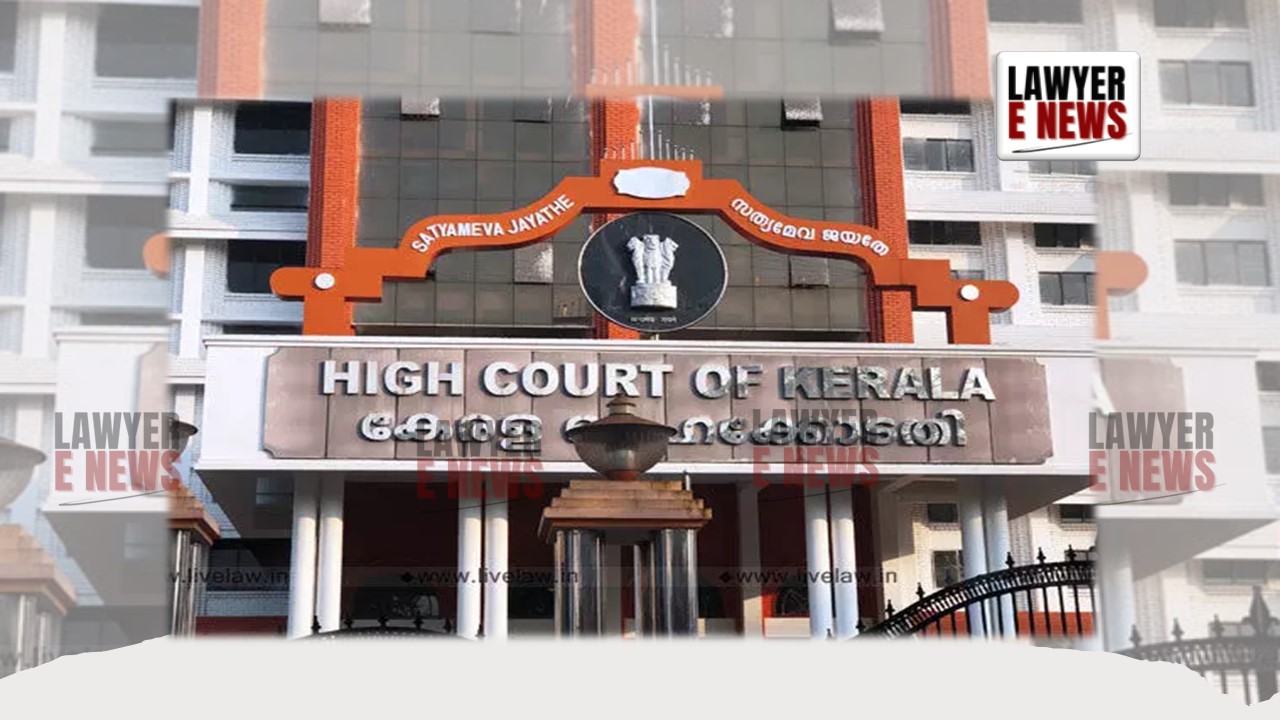-
by Admin
15 February 2026 5:35 AM



In a powerful ruling, the Kerala High Court upheld the convictions of three individuals involved in the sexual abuse of a minor, declaring that a victim's consistent and credible testimony alone can be sufficient to support a conviction in cases of child sexual abuse. Despite highlighting certain investigative flaws, the Court found the victim’s testimony "of sterling quality," reliable enough to sustain convictions under Sections 376(1) and 109 IPC and Section 23 of the Juvenile Justice Act. However, in light of mitigating factors, the Court partially allowed the appeals by reducing some sentences from life imprisonment to seven years.
“Intentional Facilitation of Sexual Offenses Constitutes Abetment, Especially When It Involves a Child,” the Court Observes
The case involved heinous allegations of sexual abuse against a 9-year-old child, with multiple accused, including the child's own mother, being charged with direct assault and abetment. The mother, along with two other men, was found guilty by the Additional District and Sessions Court, Ernakulam, leading to an appeal in the Kerala High Court. The appellants challenged the victim’s credibility and claimed flaws in the investigation, arguing that these issues invalidated the lower court's decision.
Reliability of Victim’s Testimony in Child Sexual Abuse Cases
The Kerala High Court emphasized that in cases of sexual abuse, especially involving minors, the victim’s testimony can serve as the sole basis for conviction if it meets the standard of "sterling quality" as defined by the Supreme Court in Rai Sandeep v. State (NCT of Delhi). Here, the Court found that despite certain inconsistencies in the investigation, the victim’s narrative remained consistent and credible throughout.
“In matters involving young children, exact dates and details of each incident are not expected. The core of the victim’s testimony was reliable and credible,” the Court stated [Paras 25-28].
Mother’s Role as Abettor to Abuse
The second appellant, the mother of the victim, argued that her passive presence did not constitute abetment. However, the Court held that her actions—actively facilitating the crimes by ensuring her son did not intervene and accepting money from the perpetrators—amounted to intentional aid. The Court clarified that abetment under Section 109 IPC can include any action that facilitates or enables the commission of the offense, especially in cases involving vulnerable victims.
“Standing guard and ensuring that no one disrupts the abuse constitutes intentional facilitation and qualifies as abetment,” ruled the Court [Paras 65-69].
While acknowledging investigative shortcomings, the Court reiterated that faulty investigation does not automatically lead to acquittal if the evidence presented in court is credible. Citing State of Karnataka v. K. Yarappa Reddy, the Court stressed that the judiciary should focus on the quality of the evidence rather than procedural flaws, especially when dealing with sensitive cases involving minors.
“A flawed investigation cannot diminish the truth of a victim’s credible testimony. The courts have the authority to uphold convictions when evidence independently supports the charges,” the judgment stated [Paras 19-21].
Reduction of Sentence Due to Socio-Economic and Mitigating Factors
Considering that the offenses occurred prior to the 2013 Criminal Law Amendment, which increased minimum sentences for sexual crimes, the Court opted to reduce the sentences of some of the appellants. Recognizing the socio-economic context and age of the accused, the Court determined that imposing a life sentence would be excessive in this case. The sentences were thus reduced to the minimum mandatory seven years’ imprisonment under the pre-2013 legal provisions.
“Given the socio-economic background and age of the accused, a seven-year sentence is appropriate for certain appellants,” the Court noted in its concluding remarks [Paras 85-90].
The Kerala High Court’s judgment reaffirms the legal principle that a child’s credible testimony alone can justify a conviction in sexual abuse cases, even in the absence of corroborative evidence or despite investigative flaws. This judgment also provides clarity on the definition of abetment, particularly in cases where a parent or guardian is complicit in crimes against minors. While upholding the convictions, the Court acknowledged mitigating factors and reduced some of the sentences to seven years.
Convictions Sustained, Sentences Reduced: The appeals of Balakrishnan and Rockey were partially allowed, reducing their sentences to seven years of rigorous imprisonment.
Appeal Dismissed for First Accused: The life sentence for the first appellant was upheld as the evidence against him was found compelling and consistent.
Date of Decision: October 25, 2024
Balakrishnan, Rockey, and Sindhu v. State of Kerala
